Mixed with nostalgia and fun, the Pooh Pathology Test is an interesting way to find which Winnie-the-Pooh character matches your personality and mental behaviors.
What Is The Pooh Pathology Test?
The Hundred Acre Wood may appear pleasant on the surface, but if you look closer, you’ll discover a forest of undiagnosed cognitive deficits and psychological issues.
Winnie the Pooh characters were examined by professors Dr. Sarah E. Shea, Dr. Kevin Gordon, and associates, who came to the conclusion that each of the characters could be connected to a certain psychological condition.
Each character was found to have “severe” mental health issues according to the Diagnostic and Statistical Manual of Mental Disorders ( DSM).
How Accurate Is The Pooh Pathology Test?
The quiz is based on the scientific analysis of the idrlabs Pooh pathology test along with the works of the researchers mentioned above.
We all love cartoon characters and this Winnie The Pooh Pathology Test is a fun way to learn how Winnie The Pooh and mental illness are linked. It will also tell you about the character you identify with the most.
On the other hand, this quiz will help you understand your personality, strengths, weaknesses, and quirks.
Disclaimer: The Winnie the Pooh mental illness test is not a clinical diagnosis. Your condition can only be determined by a qualified psychologist or psychiatrist. This test is a fun way to determine what type of character you are.

If you want to learn more about this Winnie The Pooh mental illness quiz, take a look at the info below!
Click “Start” To Play This Quiz
Are you ready?
What Are The Winnie The Pooh Mental Disorders?
1. Winnie-the-Pooh: Inattentive Or Lack Of Focus
Pooh is represented as a slow-witted cuddly bear but actually has difficulty paying attention to detail. He gets distracted easily and finds it difficult to organize, prioritize, and finish tasks.
Piglet is always shaking in fear and has the propensity to jump at any sound which explains his nervousness or constant fear when he is around Tigger.
3. Eeyore: Depressive Tendencies
The poor donkey is always seen to be sad, disappointing, and negative. Having such tendencies can make it hard for someone to feel joy. Eeyore deals with the trauma of losing his tail, which makes him so glum, and pessimistic.
4. Rabbit: Narcissism and perfectionism
Rabbit sees himself as the self-appointed leader of the Hundred Acre Wood. He is slightly bossy and wants to control everything.
Rabbit probably has a narcissistic personality which means that he thinks of himself as the most significant and also shows recurrent and persistent urges to keep everything perfect.
5. Owl: Dyslexia
Throughout the story, this sage owl consistently makes mistakes. He says “skull” instead of “school.” Additionally, he appears to be incapable of reading some words. People with dyslexia find it challenging to comprehend a text accurately without making any errors.
6. Tigger: Hyperactivity/Extroversion
Three words sum up Tigger: overhyped, impulsive, and unpredictable. People who relate to him might find it difficult to concentrate on a single job or subject. They also have a tendency to be overly active.
7. Christopher Robin: Delusional thinking
In Hundred Acre Wood, Christopher appears to be the most ordinary person. However, it’s likely that he experiences hallucinations as we see him constantly interacting with his animal friends.
8. Kanga: Overprotective
Being overprotective is not a mental health condition but it becomes an obsession. Kanga is a single mother who loves her child, Roo but we may find her acting as a controlling mother here and there.
9. Roo: Lack of Awareness/ Introverted thinking
Among all characters, Roo is the most free-spirited, and thirsty to learn but loses focus easily. He’s only friends with Tigger and lacks wisdom, which means he can be easily led into negative situations.
What were the Pooh pathology test results? And which among the Winnie-The-Pooh Characters do you relate to most? Share your answer in the comments below.
References
Shea, S. E., Gordon, K., Hawkins, A., Kawchuk, J., & Smith., D. (2000). Pathology in the Hundred Acre Wood: A Neurodevelopmental Perspective on A.A. Milne. Canadian Medical Association Journal, 163(12), pp. 1557-155
Smith, R.C. (2015): Winnie the Pooh Characters and Psychological Disorders. Ball State University Muncie, Indiana.
You May Also Like:
- Only A Genius Can Find The Rabbit In This Animal Puzzle: Can You?
- Pick A Geometric Shape To Discover Your True Self
- What Your Pinky Finger Says About Your Personality
- Introvert or Extrovert? Find Out With This Lemon Personality Test
- The 4 Personality Types Test: Which Type Are You?
- Type A Personality Quiz: Do You See Tree, Roots Or Lips?

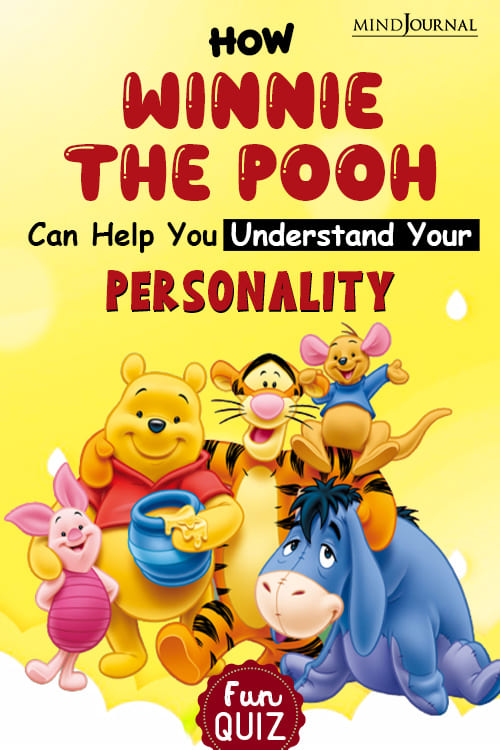

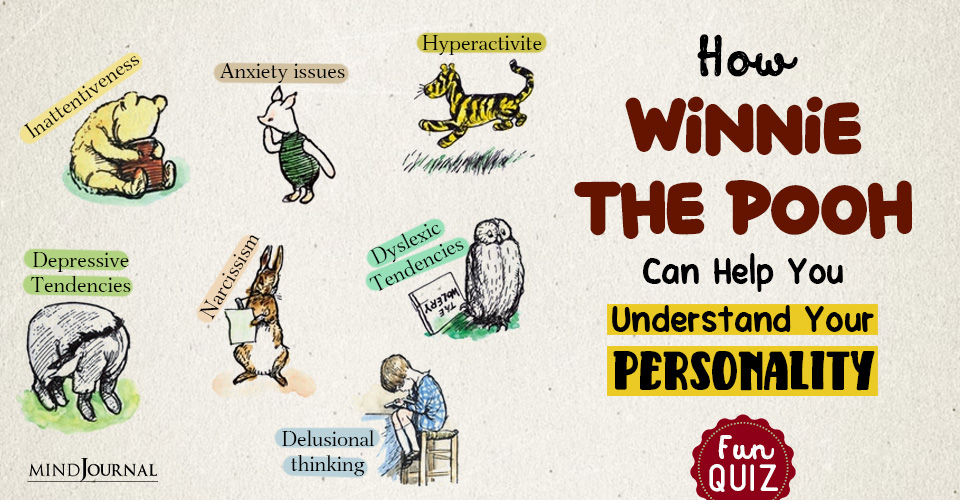

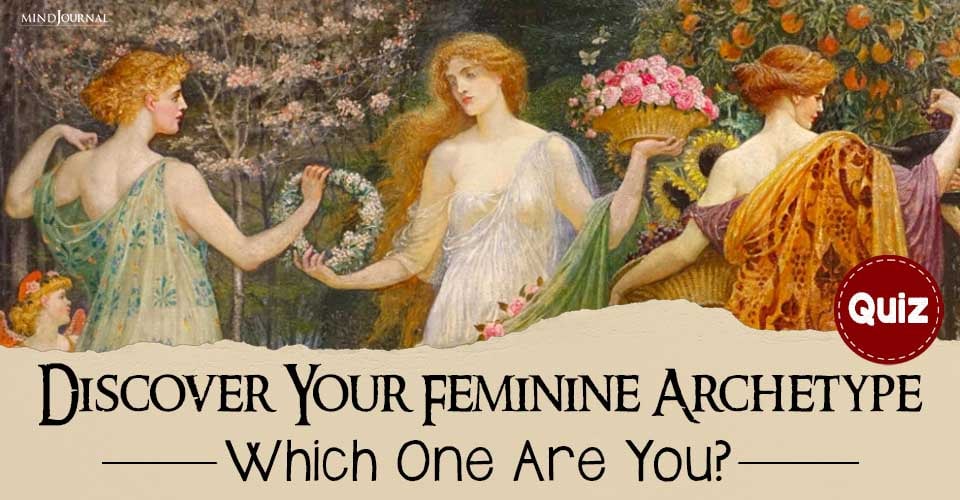


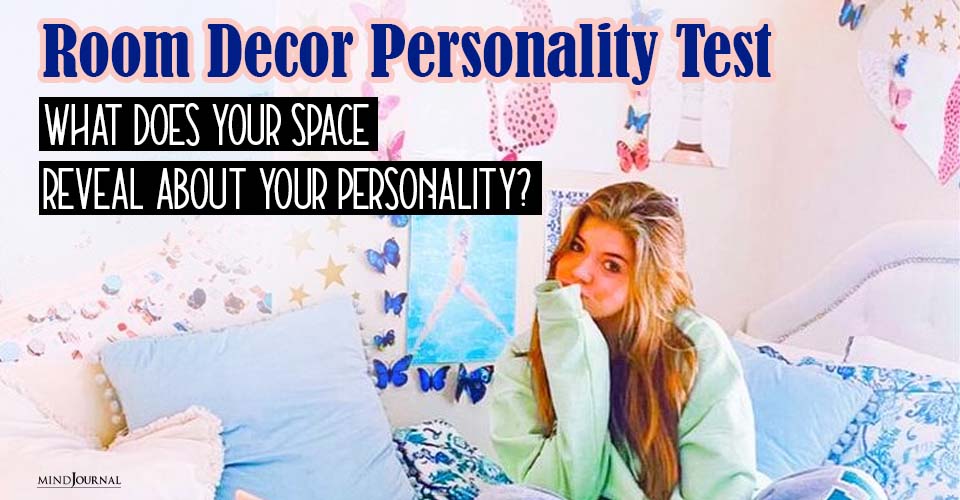
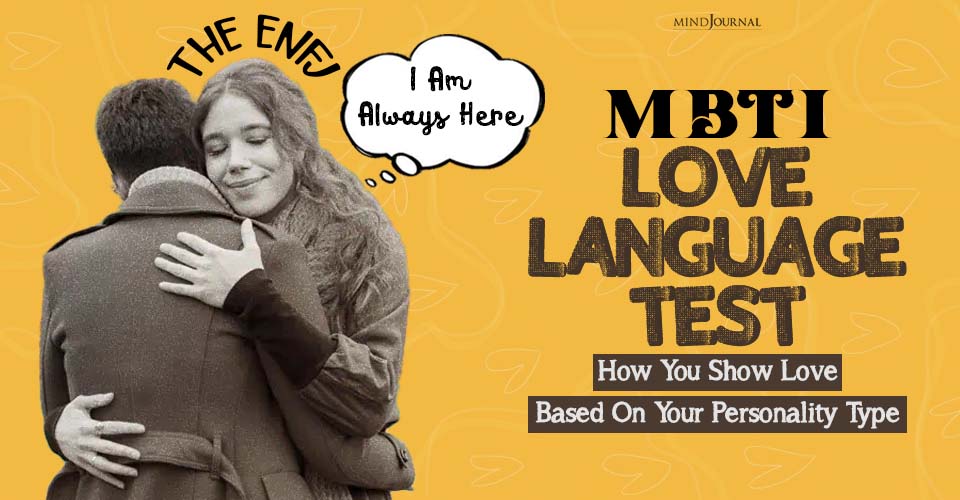

Leave a Reply